Overview
Name: Vietnam Academy of Agriculture (VAA)
Location: Located in Hanoi, Vietnam, the specific address is No. 75, Nguyen Van Chao Street, Thanh Xuan District, Hanoi.
Introduction: Vietnam Academy of Agriculture is a higher education and research institution with agricultural science, agricultural technology, rural development and natural resource management as its main directions. The school is committed to cultivating high-quality agricultural talents with professional knowledge and practical ability, and contributing to the agricultural development and rural revitalization of Vietnam. The school enjoys a good reputation in the fields of agricultural science, agricultural technology, rural development, etc., and is one of the important agricultural education and research institutions in Vietnam.
Campus and number of students
Campus: The main campus of the school is located in Thanh Xuan District, Hanoi. The campus environment is beautiful and the facilities are complete, including modern teaching buildings, laboratories, libraries, computer centers, etc. In addition, the school may also have experimental farms and research centers in other areas.
Number of students: The school currently has about 3,000 students, including undergraduates, masters and doctoral students.
Educational philosophy
The school adheres to the educational philosophy of "science, innovation, and practice", focuses on cultivating students' practical operation ability and innovation ability, encourages students to actively participate in agricultural practice and scientific research projects, and improves their comprehensive quality.
Disciplines and departments
The Vietnam Agricultural College has several colleges and departments, covering the following major disciplines:
College of Agronomy: Research on crop cultivation, plant protection, soil science, etc., and cultivate professional talents in agronomy.
College of Animal Husbandry and Veterinary Medicine: Research on animal breeding, veterinary medicine, feed science, etc., and cultivate professional talents in animal husbandry and veterinary medicine.
College of Forestry: Research on forest resource management, forest genetic breeding, forest protection, etc., and cultivate professional talents in forestry.
College of Fisheries: Research on aquaculture, fishery resource management, aquatic biology, etc., and cultivate professional talents in aquaculture.
College of Agricultural Economics and Management: Research on agricultural economy, rural development, agricultural enterprise management, etc., and cultivate professional talents in agricultural economy and management.
College of Food Science and Technology: Research on food processing, food safety, food nutrition, etc., and cultivate professional talents in food science and technology.
College of Environment and Natural Resources Management: Research environmental science, natural resources management, sustainable development, etc., and cultivate professionals in environment and natural resources management.
Course Setting
Undergraduate courses: Provide undergraduate courses in agronomy, animal husbandry and veterinary medicine, forestry, aquaculture, agricultural economics and management, food science and technology, environment and natural resources management, etc.
Postgraduate courses: Provide master's and doctoral courses in agronomy, animal husbandry and veterinary medicine, forestry, aquaculture, agricultural economics and management, food science and technology, environment and natural resources management, etc.
Short-term training: Provide various short-term training courses for in-service personnel, such as modern agricultural technology, agricultural management, food safety, etc.
Practice and internship
Internship opportunities: The school cooperates with many agricultural enterprises, research institutions and government departments to provide students with internship opportunities to help students apply theoretical knowledge to practical work.
Experimental farm: The school has an experimental farm for students to conduct field operations and research.
Scientific research projects: Students have the opportunity to participate in the school's scientific research projects and conduct cutting-edge research with their mentors.
Ranking
The Vietnam Academy of Agriculture enjoys a high reputation in the field of agricultural education and research in Vietnam, and has been rated as one of the top related colleges in Vietnam many times. Although international rankings may not be easy to obtain, it is in a leading position among similar domestic institutions.
Fees
Tuition fees: The tuition fees for local Vietnamese students are about 2 million to 4 million VND (about RMB 600 to 1,200) per semester. The tuition fees for international students will be higher, and the specific amount needs to be consulted by the school officials.
Other expenses: Including accommodation fees, textbook fees, living expenses, etc. The specific fees vary depending on personal circumstances.
Campus environment
Facilities: The school has modern teaching buildings, laboratories, libraries, computer centers, etc. There are also multiple learning and leisure areas on campus, providing a good learning and living environment.
Accommodation: The school provides dormitories for use by out-of-town and international students. The dormitory conditions are good and equipped with basic living facilities.
Notes
Language requirements: Some courses may be taught in English, but most courses are still taught in Vietnamese. International students need to have a certain foundation in Vietnamese.
Application materials: Prepare complete application documents, including transcripts, letters of recommendation, personal statements, etc.
Visa and insurance: Make sure to handle the visa procedures required for studying in Vietnam and purchase appropriate insurance.
Cultural adaptation: Learn about Vietnamese cultural customs to better integrate into local life.
-
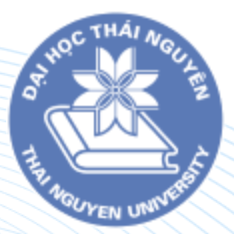
Đại học Thái Nguyên,Thai Nguyen University
-

Đại học Quốc gia Hà Nội,Vietnam National University, Hanoi
-
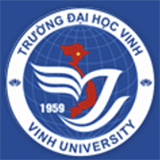
Trường Đại học Vinh,Vinh University
-
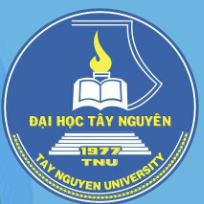
Trường Đại học Tây Nguyên,Tay Nguyen University
-
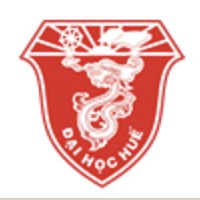
Đại học Huế,Hue University
-

Đại học Quốc gia Thành phố Hồ Chí Minh,Ho Chi Minh City National University
-

Trường Đại học Cần Thơ,Can Tho University,CTU
-
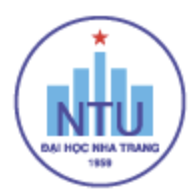
Trường Đại học Nha Trang,Nha Trang University
-
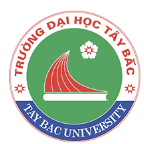
Trường Đại học Tây Bắc, Tay Bac University
-

Trường Đại học Công nghệ Giao thông Vận tải,University of Transport Technology
-

Mesoamerican University
-

Istmo University
-

Mariano Galvez University of Guatemala
-

Regional University of Guatemala
-

Galileo University
-

Francisco Marroquín University
-

Rafael Landívar University
-

University of the Valley of Guatemala
-

University of San Carlos of Guatemala
-

Technological Institute of Tlaxcala Plateau
-

Golfo University
-

Technological University of South Sonora
-

Technological University of Huejotzingo
-

Tizimín Institute of Technology
-

Chilpancingo Institute of Technology

